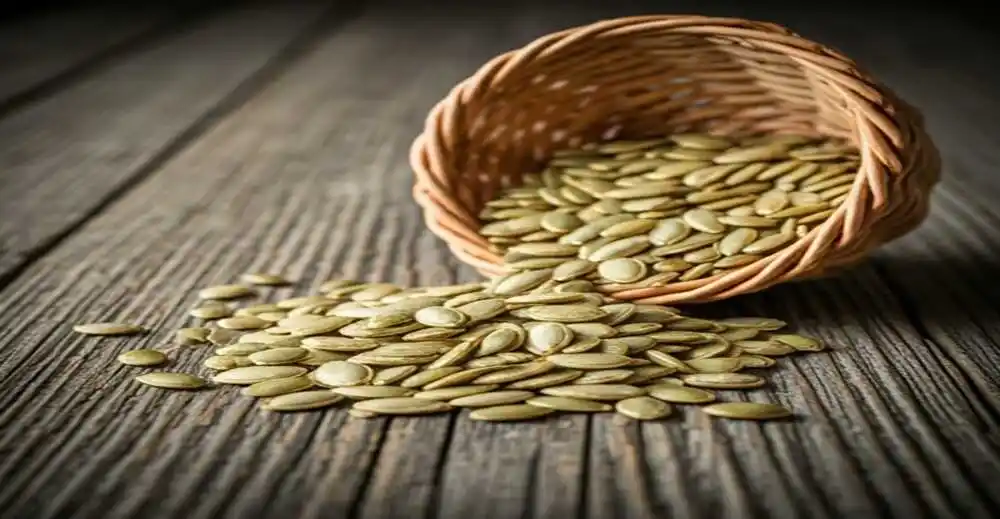Vegetable Seed Market size worth US$11.785 billion by 2029

The vegetable seed market is estimated at US$8.782 billion in 2024 and is anticipated to grow at a CAGR of 6.06% to reach US$11.785 billion by 2029.
Vegetable seeds are tiny embryonic plants covered with a protective seed coating. The seed requires a variety of conditions to grow and shape into a mature plant. Seeds of a vegetable have an embryo, endosperm, and seed coat as components. Vegetable seeds could be of different types depending on their growing season, namely, annuals, biennials, or perennials. Annual seeds complete their live cycle incorporating germination, development, blossoming, and seed production all within the same growing season, biennials require two seasons to complete their life cycle while perennials survive for a period more prominent than two years.
Various variables encourage the growth of the vegetable seeds market such as expanding health-conscious consumers adopting more vegetables in diets, and the significance of a healthy diet to avoid chronic illnesses. The rise in urbanization has moreover driven an increment in home planting and community gardens as a means of hobby. Cross-breed and genetically modified seeds are being developed, which is progressing yield, illness resistance, and dietary quality due to innovative advancements. Drone and sensor technology are enabling more precise seed planting and enhanced crop yields in agriculture. Moreover, increasing spending on premium vegetables is being supported by economic growth and rising disposable income, especially for high-quality fresh produce leading to a substantial shift from farm-saved seed multipurpose varieties to advertised brands of premium vegetable seeds with determinate characteristics.
The market is witnessing diverse collaborations and innovative technological advancements, for instance, BASF announced a collaboration with Plant Products to distribute Nunhems greenhouse tomato and cucumber seeds for indoor development within the Controlled Environment Agriculture (CEA) market. Beginning August 19, 2024, Plant Products plans to disperse these seeds for indoor utilize within the United States and Canada. This move marks a vital step towards expanding access to high-quality vegetable seeds for CEA cultivators.
Based on the type, the vegetable seeds market is divided into root bulb, solanaceae, brassica, leafy, and others. Solanaceae vegetable seeds are the leading segment in the global vegetable seeds market. Among all the vegetables such as tomatoes, peppers, eggplants, and potatoes are derived from Solanaceae vegetable seeds with widest applications in addition to their angles to cover high demand, yield production properties, and availability year-round. These crops are consumed as fresh salads, cooked dishes, processed products, or industrial products used in many different types of cuisines.
Based on the farm type, the vegetable seeds market is classified into indoor and outdoor. Outdoor farming is the major segment in the vegetable seeds market as increasing consumers tend to adopt fresh yields and the availability of good infrastructure. It needs vast land area, particularly in developing countries hence it requires low investment in infrastructure as well as lighting cost. Similarly, fresh vegetables and fruits are considered frequently superior in taste due to the outdoor growth of natural foods that are preferred by consumers.
Based on the trait, the vegetable seeds market is categorized into conventional and genetically modified. Conventional vegetable seeds contribute majorly to the vegetable seeds market as this demand is directly influenced by long-term safety and environmental considerations, consumers want conventional seeds over genetically modified seeds. Governments enforce a massive number of restrictions on genetically modified crops that drive up costs and make commercialization difficult for businesses.
Based on geography, Asia-Pacific is the fastest-growing region for the vegetable seeds market and is free from climatic variations as the production of vegetables in greenhouses is possible which accelerates the growth of the seeds. Driving the demand for vegetable seeds in the region is that it has the world's largest population further demanding temperate and tropical food with a changing vegetable liking which is reflected in the demand for more vegetables. The demand for urban food production, as well as disposable income fuelling health-conscious purchasing decisions, has all contributed to an increased market size.
As a part of the report, the major players operating in the vegetable seeds market that have been covered are W. Atlee Burpee & Co., Mahindra Agri-Business, Bayer AG, Takii & Co. Ltd., Syngenta, Sakata Seed America, Kitazawa Seed Company, Corteva, Limagrain, Vokkal Seed, East-West Seed India, Rijk Zwaan India, German Seed Alliance, and BASF Agriculture Solutions.
View a sample of the report or purchase the complete study at https://www.knowledge-sourcing.com/report/vegetable-seed-market
This analytics report segments the vegetable seeds market on the following basis:
- By Type
- Solanaceae
- Brassica
- Root Bulb
- Leafy
- Others
- By Farm Type
- Indoor
- Outdoor
- By Trait
- Conventional
- Genetically Modified
- By Geography
- North America
- USA
- Canada
- Mexico
- South America
- Brazil
- Argentina
- Others
- Europe
- Germany
- France
- United Kingdom
- Spain
- Others
- Middle East and Africa
- Saudi Arabia
- Israel
- Others
- Asia Pacific
- China
- Japan
- South Korea
- India
- Others
- North America
- Biological Seed Treatment Market Report
- Seed Coating Market Size
- Global Seed Market Size
Get in Touch
Interested in this topic? Contact our analysts for more details.
Latest Press Releases

Pain Management Drugs Market expected to reach USD 116.412 billion by 2030
Recently
Organic Acids Market expected to reach USD 21.582 billion by 2030
Recently
Enterprise Artificial Intelligence (AI) Market expected to reach USD 83.850 billion by 2030
Recently
Non-Woven Adhesive Tape Market expected to reach USD 3,124.230 million by 2030
Recently